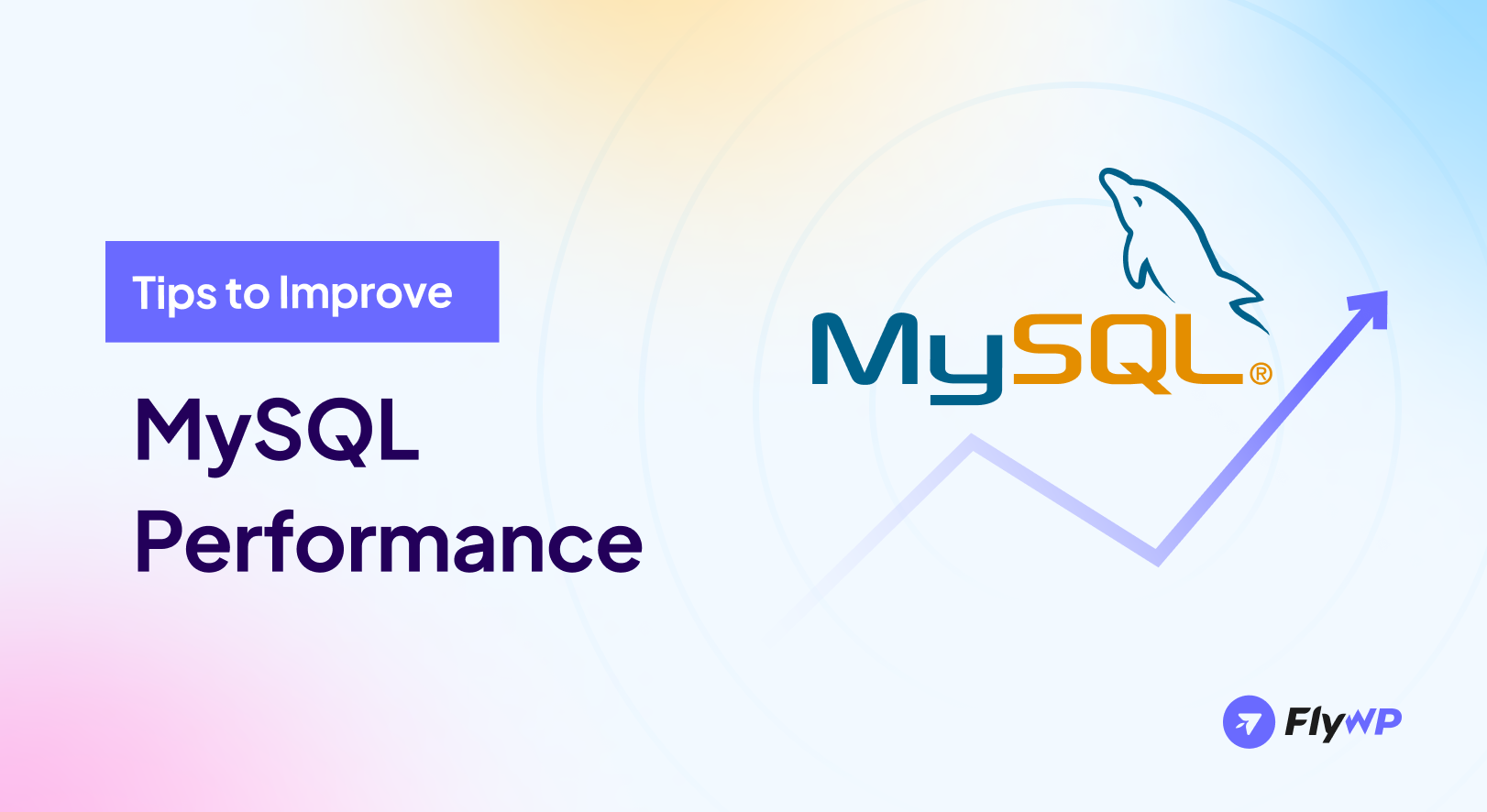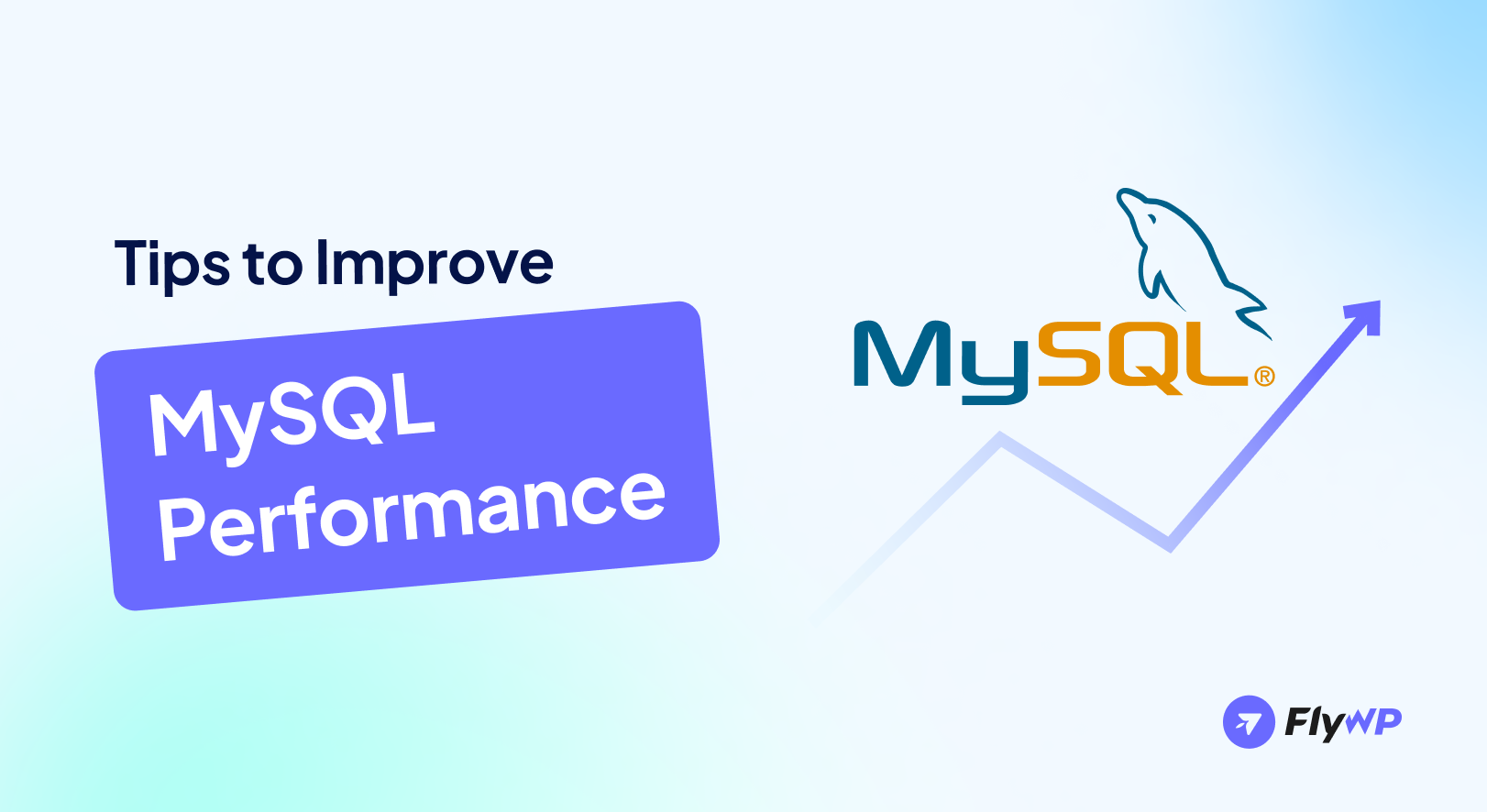“How to improve MySQL performance” is a question many developers and database administrators face as they seek to optimize their applications for speed and reliability. This article will explain the strategies and best practices to improve your MySQL database performance.
MySQL is one of the most popular relational database management systems. It is at the heart of countless applications, powering everything from small-scale projects to enterprise-level systems.
Imagine you’re at a bustling coffee shop, trying to order your favorite drink. But there’s a problem: the service is slow, the queue is long, and the staff are overwhelmed. Frustrating, right? Now, think of your MySQL database as the coffee shop. When it’s not optimized, data requests pile up like customers in a queue, leading to slow service and unhappy users.
But fear not! Just as a well-organized coffee shop can serve customers quickly and efficiently, a finely organized MySQL database can handle queries at lightning speed, keeping your applications running smoothly and your users happy.
What is MySQL?
MySQL is an open-source relational database management system known for its reliability, scalability, and ease of use. With its rich features and robust performance, MySQL is the backbone of web applications, e-commerce platforms, and data warehouses.
It is like a massive, well-organized digital filing cabinet where your computer or website stores all its important data. Imagine you run a library with thousands of books. Without a system, finding the book you want would be a nightmare. MySQL helps avoid this mess by organizing data into easily accessible tables. It’s not just for tech giants; even small blogs use MySQL to keep track of posts and user comments.
Let’s say you run an online store. MySQL keeps tabs on everything: what you sell, who buys it, and their feedback. When a customer searches for a product, MySQL quickly sifts through its tables, finds the relevant details, and displays them on your website. This quick, efficient process helps your site run smoothly.
So, in a nutshell, MySQL is the behind-the-scenes hero, ensuring the data you need is just a quick search away!
The importance of MySQL database optimization
Optimizing the MySQL database is like fine-tuning your car to ensure it runs at top speed and efficiency. When your database is streamlined, your applications zip along faster, making your users happy because they don’t have to wait around for pages to load or transactions to complete.
Imagine if your database were a cluttered closet. If you organize it, you’ll find what you need quickly without rummaging through everything. Similarly, when you optimize your MySQL database, it finds and retrieves data swiftly, boosting the performance of your website or app.
Let’s see why it should be at the top of your priority list:
- Improves Performance: Optimizing your MySQL database enhances its performance, ensuring faster data retrieval and smoother application functioning.
- Enhances User Experience: A faster database contributes to a better user experience, with quicker load times and more responsive applications.
- Supports Scalability: Optimization ensures your database can handle increased data and user load, essential for growing applications.
- Cost-Efficient: A well-optimized database uses server resources more efficiently, reducing operational costs by avoiding unnecessary resource consumption.
- Strategic Advantage: Besides just technical benefits, optimizing MySQL is a strategic move to keep your digital presence agile, efficient, and prepared for future growth and challenges.
Steps to enhance MySQL performance

Boosting your MySQL performance is important to make sure your database runs smoothly and supports your business like a champ.
In this section, we’re going to show you some easy ways to make your MySQL queries faster and more efficient. These ways will help you cut down on slow queries, lower the chance of database hiccups, and get your database running at its best.
01. Analyze your database. Start by checking how your database is currently performing. Think of it as a health check-up to find out where you can improve.
02. Update your MySQL version: Just like updating your phone makes it run smoother, upgrading to the latest MySQL version can boost performance because newer versions come with improved features and fixes.
03. Use appropriate indexing: Find out which data and columns in WHERE, JOIN, and ORDER BY clauses you use a lot and put indexes on those columns. Indexes help MySQL quickly grab the needed data without going through the whole table. But be careful not to make too many indexes, as they can make adding, changing, or removing data slower.
04. Optimizing MySQL speed with indexing:
Think of indexes as shortcuts that help MySQL quickly find the data you need, making your database run faster, especially when pulling up specific information. It’s like using bookmarks in a book to flip right to the chapter you need instead of thumbing through every page. When you write queries, make sure they’re set up to take advantage of these shortcuts. It’s best to add indexes to columns you often search through, like primary keys or those you use in JOINs or WHERE clauses.
But too many shortcuts can slow things down. Overdoing it with indexes can take up more space on your computer. Adding just enough indexes based on what your app needs will keep things zipping along smoothly.
5. Avoid unnecessary columns in the SELECT Clause

Skip the extra columns in your SELECT statement. Rather than using ‘SELECT *’, list out the specific columns you want. This approach boosts MySQL’s speed by avoiding the extra work of fetching columns you don’t need, which can slow down the database and the entire process
6. Limit the amount of data retrieved: When you only need a few rows, use the LIMIT clause to cut down on what the query brings back. This makes MySQL faster, especially when you’re dealing with big sets of data. Break up data retrieval into smaller pieces in your apps to lighten the load on your server and speed up responses.
7. Use joins and avoid unnecessary subqueries: When linking tables, pick the right type of join (like INNER JOIN or LEFT JOIN) based on how your tables connect and what you need from them. Try to use fewer subqueries because joins often do the job better and faster. Whenever you can, turn subqueries into joins.
8. Hardware upgrade: Consider upgrading your hardware if the current setup is not sufficient for your database’s workload.
9. Take Database Backup: Regularly backup your database to ensure data integrity and to facilitate the recovery process in case of any performance issues or data loss.
10. Monitor & adjust: Use tools like MySQL Performance Schema to monitor the database’s performance and identify any bottlenecks or issues that may need to be addressed.
11. Database partitioning: Partition your database to distribute the workload across multiple servers or partitions, which can improve performance for large databases.
12. Caching: Implement caching mechanisms to store frequently accessed data in memory, reducing the number of disk reads and improving performance.
13. Configuration Tuning: Tune your MySQL configuration settings to optimize memory usage, thread pool size, and other parameters that can impact performance.
Things to consider before optimizing MySQL database
Before optimizing your MySQL database, there are a few things you should think about to make sure you’re on the right track –
- Know Your Goals: Before tweaking your database, identify what you aim to improve—speed, capacity, or something else. Understanding your end goal helps you tailor your optimization efforts effectively, ensuring they align with your overall objectives.
- Check your current setup: Evaluate your database’s current performance to pinpoint areas needing improvement. This baseline understanding is crucial for measuring the impact of your optimizations and providing a clear before-and-after comparison.
- Understand your data: Grasp the nature and usage of your data. Different data types and usage patterns require distinct optimization strategies, so a deep understanding helps apply the most effective tweaks.
- Plan for downtime: Some optimizations might require temporarily taking your database offline. Planning this downtime minimizes disruption, ensuring users and stakeholders are informed and prepared.
- Backup your data: Always back up your database before making changes. This safety net means you can restore your system if something unexpected happens, safeguarding your valuable data against loss.
- Think long-term: Consider how your changes will accommodate future growth or changes in usage. Optimizations should not only address current issues but also anticipate and support future demands.
With these considerations, you’ll be well-prepared to optimize your MySQL database thoughtfully and effectively, ensuring lasting benefits and stability.
Benefits of improving MySQL performance
Improving MySQL performance offers a range of benefits that positively impact database operations and overall system efficiency –
- Reduced Infrastructure Costs: Optimized queries can lower infrastructure costs by reducing hardware requirements and optimizing server usage.
- Reduced Downtime: Enhanced queries minimize the risk of performance bottlenecks and crashes, leading to improved system stability and reduced downtime.
- Improved User Experience: Faster data retrieval and processing times result in a more responsive application, enhancing the user experience and reducing bounce rates.
- Cost Savings: Efficient queries lead to cost savings by optimizing server resources and improving overall system performance.
- Competitive Advantage: Faster application performance can provide a competitive edge in attracting and retaining customers in a competitive market.
- Handling High Traffic: Optimization ensures the system can handle high user traffic without compromising performance, which is crucial for web applications with heavy traffic.
Optimize your MySQL performance with FlyWP
Let’s introduce FlyWP, your guiding partner in the MySQL optimization journey! As you enhance your database’s performance with our user-friendly guide, remember that FlyWP is here to lend a helping hand.
Whether you’re tweaking indexes or strategizing backups, FlyWP offers the tools and expertise to ensure your optimizations are successful and your database is running at its best. Consider using FlyWP to make your website or app smoother and more efficient, ultimately delighting your users.
So, take these insights, apply them with the help of FlyWP, and watch as your database transforms, powering your site or application to new heights of performance.
Happy optimizing with FlyWP!
Conclusion
And there you have it! Improving MySQL performance is an ongoing process that requires a deep understanding of your database and its workload.
Optimizing your MySQL database might seem like a big task, but by breaking it down into manageable steps and considering everything carefully, you can make a huge difference in how your database performs. Remember, it’s all about making your website or app run smoother and keeping your users happy.
So, take it one step at a time, keep your goals in sight, and soon you’ll see your efforts pay off with a faster, more efficient database.
Common FAQs on improving MySQL performance
01. How often should I optimize my MySQL database?
Regular monitoring is key. Depending on your database’s size and workload, periodic optimization—such as monthly or quarterly—can help maintain performance.
02. Can too many indexes affect MySQL performance?
Yes, while indexes are crucial for read performance, each index adds overhead to write operations. Ensure you only create indexes that provide substantial performance benefits.

Add your first comment to this post